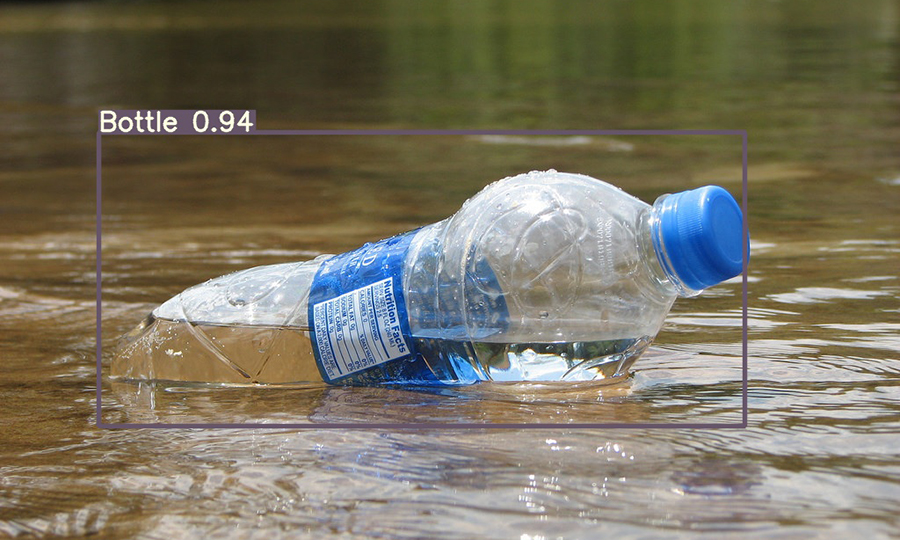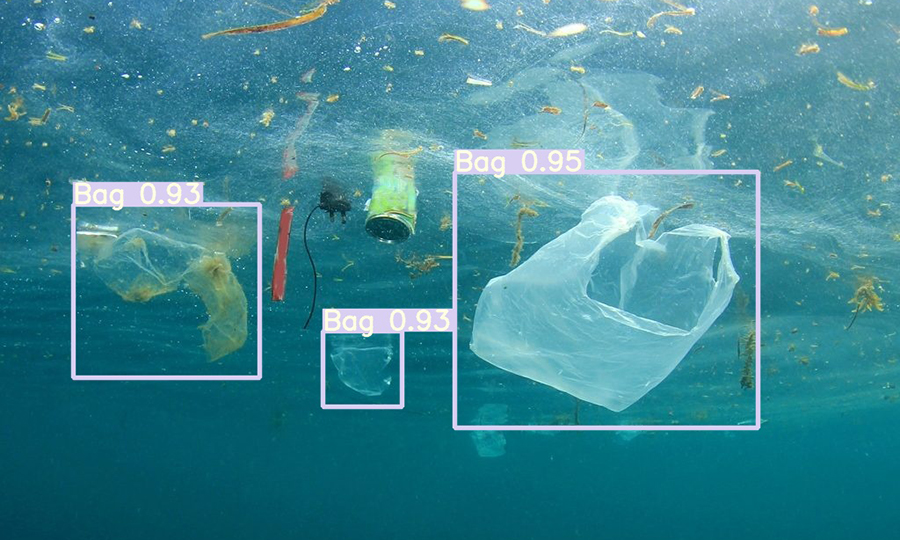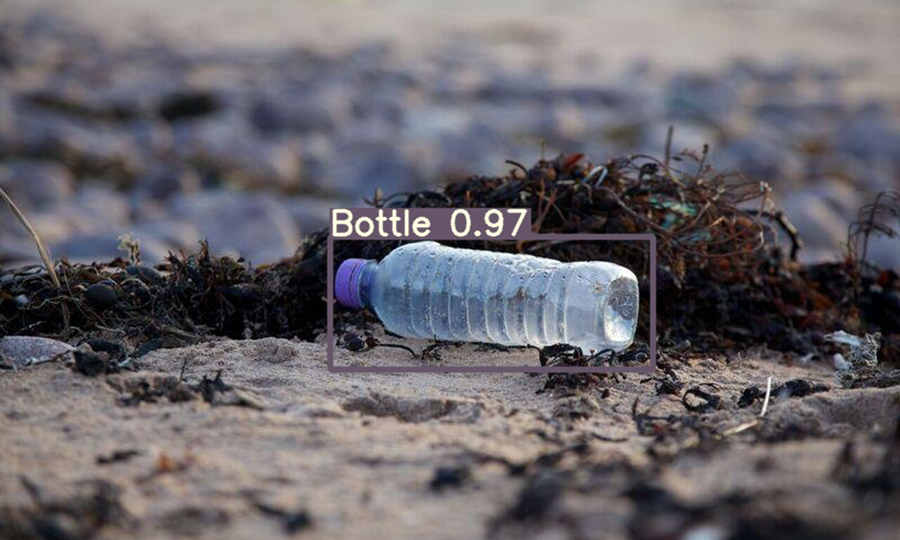
Newsroom
Cyprus has 69 Blue Flag beaches and this makes the need to protect our coastline even more urgent. Researchers at the University of Nicosia have developed an innovative method to estimate the extent of the plastic problem on our island's shores. The team of the Marine & Carbon Lab (www.carbonlab.eu) used artificial intelligence tools to locate, identify and assess the number of plastic objects that pollute the beaches of Cyprus.
Recognizing that it is impossible to count the thousands of plastics on our beaches, researchers created a clever method based on deep-learning algorithms such as YOLOv5 and YOLACT ++. The research initially trained intelligent algorithms in identifying the 7 most common categories of objects found in the marine environment. These include plastic bottles, bags, plastic boxes, straws and food wrappers.

Then, the ability of artificial intelligence tools to recognize plastics was verified by applying them to videos taken from various beaches in Cyprus depicting plastic objects. Thanks to the tools' ability to scan large areas of video-recorded beaches, the clever method has been able to detect and classify plastics found in the marine environment.
Using images depicting plastics from six beaches in Cyprus, the clever method, based on the YOLACT ++ algorithm, identified plastic objects belonging to four categories, such as bottles, bags, straws and food wrappers. Taking into account the total length of the beaches examined, the above number was translated into a density of 0.035 plastics/m2. In a ratio for the entire coastline of the island, which corresponds to 735km, the smart method estimated that there are about 66,000 plastics with a total weight of about 1,000 kg.

The estimated density for Cyprus of 0.035 plastics/m2 is comparable to the number of plastics found in neighboring countries. For example, the density of plastics on beaches in the Ionian Sea was estimated to be at least 0.03 plastics/m2, while on Turkish shores it was reported that there are at least 0.085 plastics/m2. In addition to estimating the density of plastics, their dimensions were predicted using an easy-to-use image processing tool. The results showed that the most common size of plastics on these beaches was between 10 and 30 cm, a result comparable to the size of common plastics that often pollute the seashores.
The research aimed to devise the fastest and most practical method of counting the number of plastics on the shores and seas of the world. One aspect of the solution to the problem of plastic pollution lies in the need for rapid detection in large areas of either the coast or the sea. Although it is impossible to assess all the coasts of the world, the development of advanced technologies, such as the clever method developed by this group, may prove to be crucial for the future environmental management of pollution, both at sea and on land.

The research was funded by the Universitas Foundation, the University of Nicosia, the Leventis Foundation, and the EU Horizon 2020 program. The results of the study were published in the prestigious scientific journal Marine Pollution Bulletin: https://bit.ly/3lbecqz . The study was attended by Ms. Kyriaki Kyllili, Dr. Alessandro Artousi and Dr. Konstantinos Chatzistasou.
More information can be found at: http://www.carbonlab.eu/marine-debris/































